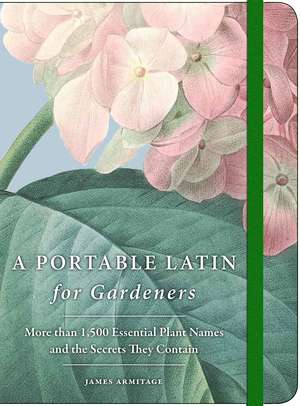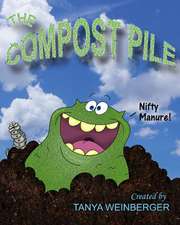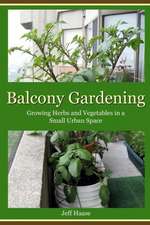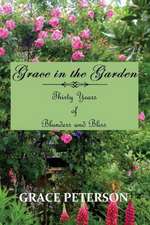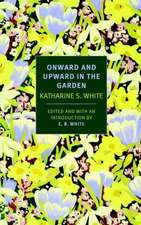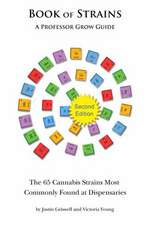A Portable Latin for Gardeners: More than 1,500 Essential Plant Names and the Secrets They Contain
Autor James Armitageen Limba Engleză Paperback – 22 feb 2017
Having an understanding of botanical Latin unlocks an entirely new layer of the plant world. Gardeners deciding between a Crocus flavus and Crocus graveolens will know that one produces deep yellow flowers while the other boasts a prominent smell. They can tell whether a plant should have one (unifolius), two (diphyllus), or even nine leaves (enneaphyllus). And they can catch the nods to Sir Joseph Banks in Cordyline banksia and Queen Victoria in Agave victoriae-reginae.
A Portable Latin for Gardeners is the perfect quick reference for working in the garden, shopping for plants, or doing botanical research—and no prior knowledge of Latin is required. The 1,500 terms are grouped by categories, making it easy to describe color, size, form, habitat, scent, taste, and time. Gardeners will make new connections and discoveries in a way standard alphabetical lists simply don’t allow. Alternately, gardeners who want to look up a particular term can jump right into the alphabetical index. Each entry includes the different forms of the term, a basic pronunciation guide, the definition, and an example plant species.
Rich botanical illustrations make this guide as beautiful as it is useful, while a durable flexi-bound cover means the book can withstand both days in the garden and evenings on the nightstand.
A Portable Latin for Gardeners is the perfect quick reference for working in the garden, shopping for plants, or doing botanical research—and no prior knowledge of Latin is required. The 1,500 terms are grouped by categories, making it easy to describe color, size, form, habitat, scent, taste, and time. Gardeners will make new connections and discoveries in a way standard alphabetical lists simply don’t allow. Alternately, gardeners who want to look up a particular term can jump right into the alphabetical index. Each entry includes the different forms of the term, a basic pronunciation guide, the definition, and an example plant species.
Rich botanical illustrations make this guide as beautiful as it is useful, while a durable flexi-bound cover means the book can withstand both days in the garden and evenings on the nightstand.
Preț: 120.87 lei
Nou
Puncte Express: 181
Preț estimativ în valută:
23.14€ • 25.14$ • 19.45£
23.14€ • 25.14$ • 19.45£
Carte disponibilă
Livrare economică 31 martie-14 aprilie
Preluare comenzi: 021 569.72.76
Specificații
ISBN-13: 9780226455365
ISBN-10: 022645536X
Pagini: 160
Ilustrații: 200 color plates
Dimensiuni: 146 x 191 x 15 mm
Greutate: 0.36 kg
Ediția:1
Editura: University of Chicago Press
Colecția University of Chicago Press
ISBN-10: 022645536X
Pagini: 160
Ilustrații: 200 color plates
Dimensiuni: 146 x 191 x 15 mm
Greutate: 0.36 kg
Ediția:1
Editura: University of Chicago Press
Colecția University of Chicago Press
Notă biografică
James Armitage is the principal botanist with the Royal Horticultural Society. He has worked on several books, including the RHS Plant Finder and the most recent edition of The Hillier Manualof Trees and Shrubs.
Cuprins
Introduction
How to use this book
A brief guide to plant names
CHAPTER ONE
COLOR
Light colors
Bright colors
Dark colors and multicolors
CHAPTER TWO
PLANT FORM
Habit
Spreading growth
Size
Shape
CHAPTER THREE
FEATURES OF PLANTS
Flowers
Leaves
Fruit
Stems and shoots
Texture and thorns
Taste and smell
Additional features
CHAPTER FOUR
COMPARISONS
Animals
Man-made objects
Natural objects
Appearance of other plants
Leaves of other plants
CHAPTER FIVE
PLACES AND PEOPLE
Europe
Asia
North and South America
Other areas of the world
Plant habitats
People
CHAPTER SIX
IDEAS, ASSOCIATIONS, AND PROPERTIES
Animal associations
Useful properties
Good qualities
Bad qualities
Relationships
Aspects of time
Further concepts
Other names as names
A–Z Index
Credits
How to use this book
A brief guide to plant names
CHAPTER ONE
COLOR
Light colors
Bright colors
Dark colors and multicolors
CHAPTER TWO
PLANT FORM
Habit
Spreading growth
Size
Shape
CHAPTER THREE
FEATURES OF PLANTS
Flowers
Leaves
Fruit
Stems and shoots
Texture and thorns
Taste and smell
Additional features
CHAPTER FOUR
COMPARISONS
Animals
Man-made objects
Natural objects
Appearance of other plants
Leaves of other plants
CHAPTER FIVE
PLACES AND PEOPLE
Europe
Asia
North and South America
Other areas of the world
Plant habitats
People
CHAPTER SIX
IDEAS, ASSOCIATIONS, AND PROPERTIES
Animal associations
Useful properties
Good qualities
Bad qualities
Relationships
Aspects of time
Further concepts
Other names as names
A–Z Index
Credits
